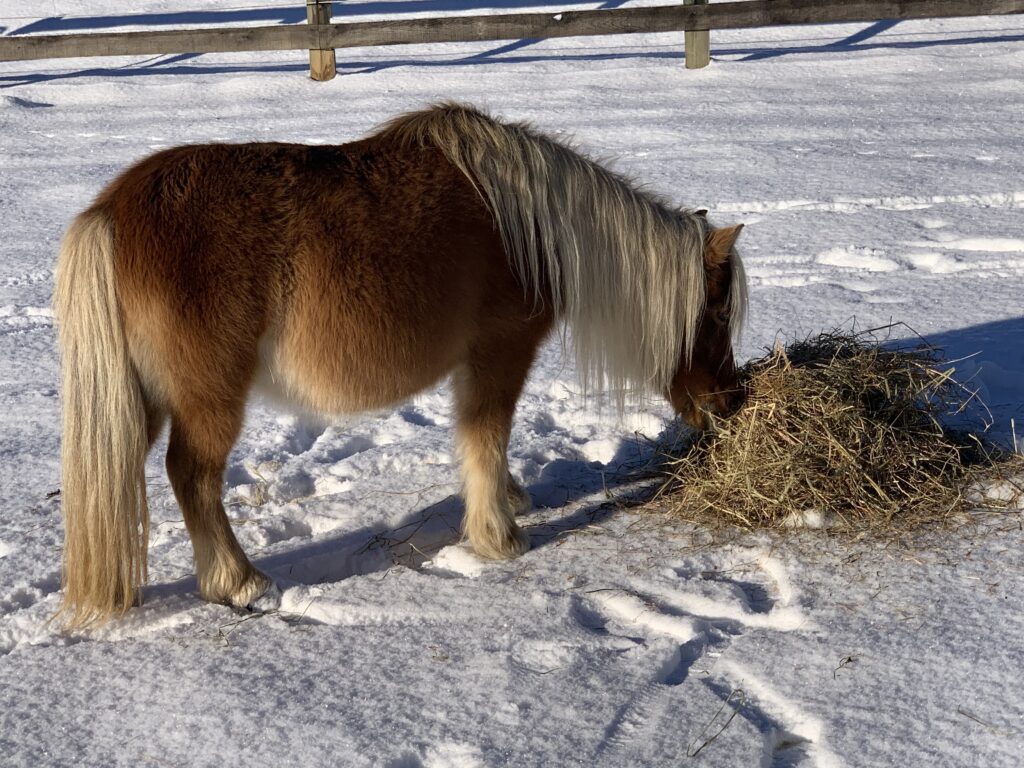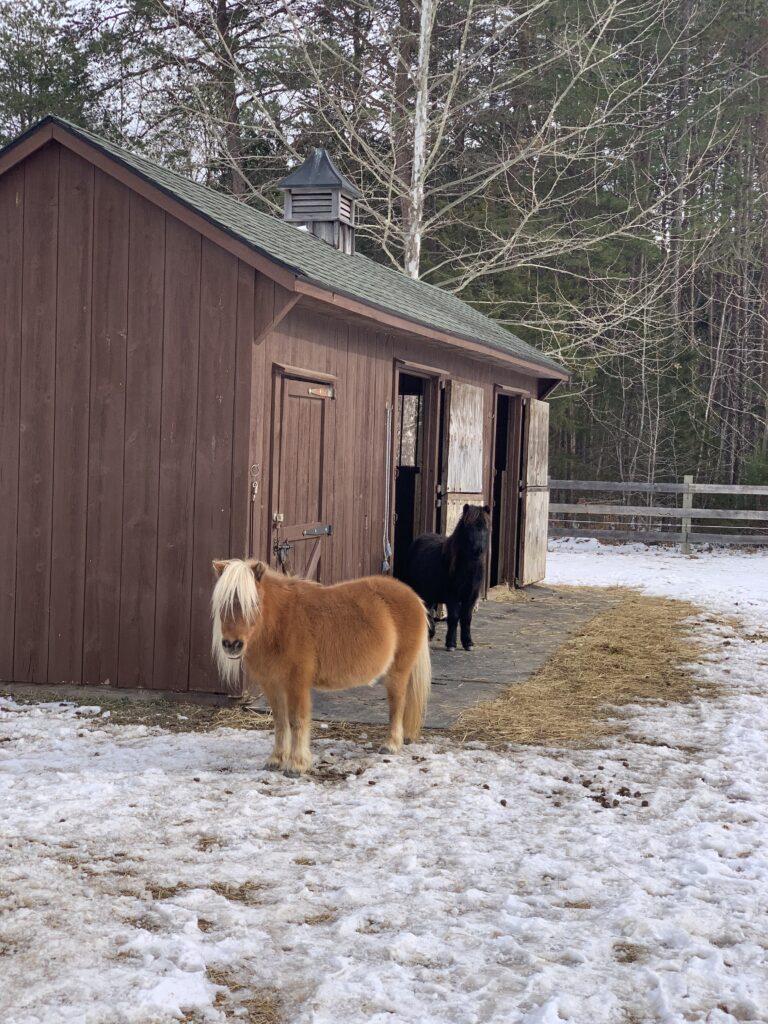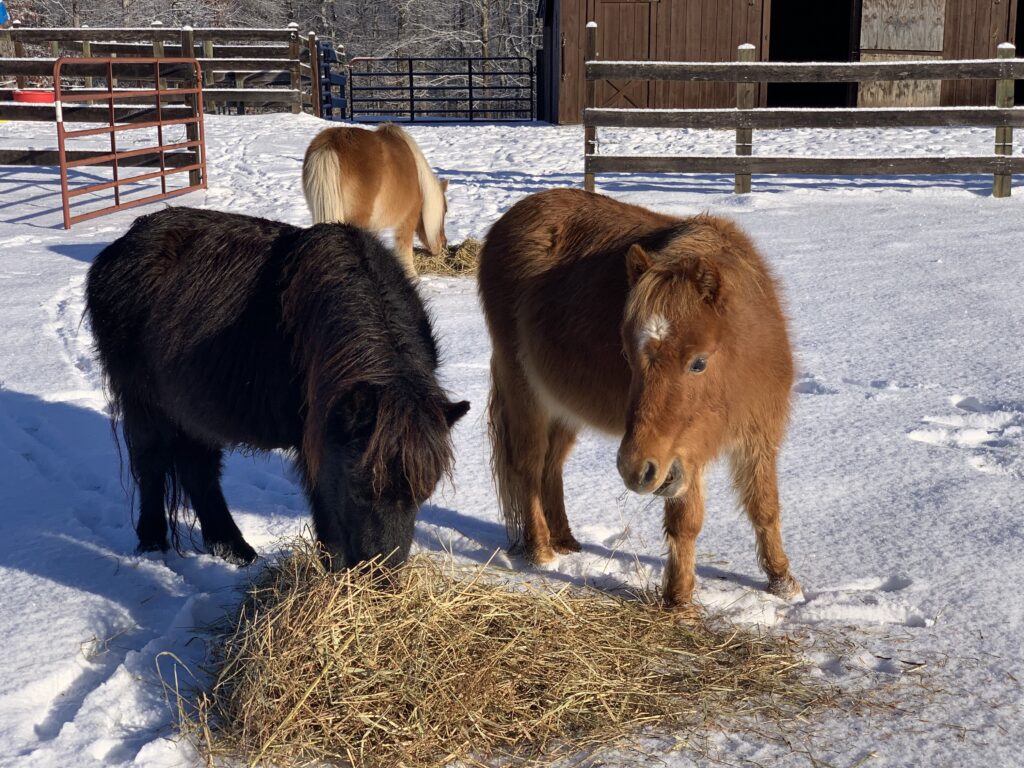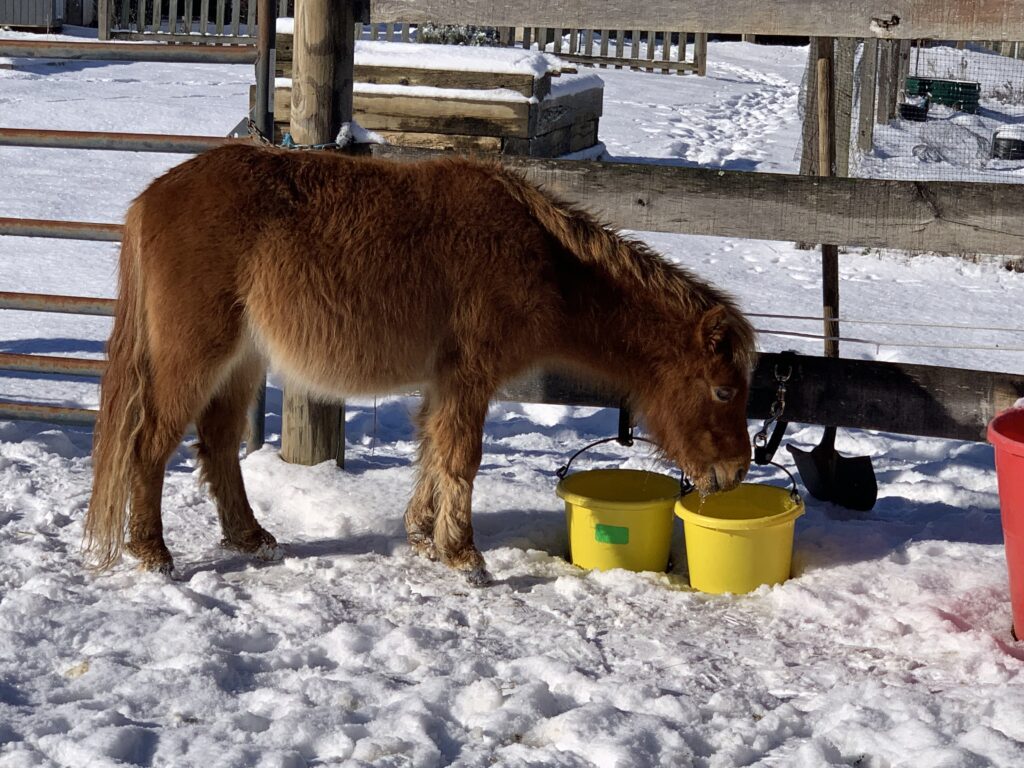What All Horses Need
All horses, no matter the breed, have three basic needs for winter weather survival. Food, water and shelter. Because horses have relatively small stomachs, they require small, frequent meals which is why their digestive system has been designed for continuous grazing. In winter, with limited grass to graze upon, we turn to feeding hay. Many horses are supplemented with hay throughout the year, but in the cold winter months, a larger amount is typically necessary.
The Importance Of Hay
Not only does hay provide the horse with the forage he needs to support proper digestion and caloric intake, but the fermentation of the fiber in their gut produces heat which helps to warm the horse from the inside out. During the polar vortex we experienced throughout the month of January, we were personally feeding our minis around 50% more hay than usual to ensure they were comfortable during the extremely cold temperatures with lows in the single digits. Another reason for this was that much of the ground had become covered with several inches of snow and ice which significantly impacted their ability to graze.
The Importance Of Water
As temperatures dip below freezing, horse owners need to become especially vigilant about their horse’s access to drinking water. Many of us rely on troughs and tubs to supply water to our horses which can quickly become frozen over in winter. It is not uncommon for some horses to break through the thin skim of ice that may freeze over the top in order to drink, however when temperatures drop too low, and for too long, the ice can become so thick that it can not be broken. Even when the ice has been manually broken or removed from the trough, some horses remain reluctant to drink the ice cold water. This can be very dangerous, as water is essential for the health and digestion of the horse, and dehydration can lead to colic which can be fatal. Providing warm water is an excellent way to help encourage your horse to drink in the coldest of weather. A warm bucket of water for your horse is like drinking a warm cup of tea, once again warming your horse from the inside. Investing in a trough heater or de-icer is another way of helping to ensure your horse has proper access to drinking water and remains hydrated in the winter months. Knowing your horses and their tendencies, as well as keeping a watchful eye on them in the extreme cold is very important.
Types Of Shelters
Shelters can come in many forms from big beautiful barns, to run-in sheds, to a dense wooded area. On large expansive properties, many horses rely on the forest to provide shelter from the cold rains, wind and snow. When horses are allowed to grow and thick winter coat, they naturally provide their own insulation. By design, a thick winter coat will not only insulate the horse, but it will help keep moisture away from the skin and act as a windbreak. However, if the horse becomes soaked in a cold rain, the insulating barrier becomes compromised and the horse can become very cold. This is why cold rains in the low-mid 30’s can be the hardest on horses, and even harder still when it is windy. Access to some sort of shelter is very important, especially on cold wet days when the horse needs to seek reprieve.
To Blanket Or Not
Most horses have no trouble growing a wonderfully thick winter coat, and have no real need for a blanket. When we begin blanketing a horse, we interrupt their body’s natural insulating capabilities, which means the horse becomes reliant on the blanket and on us for this protection. However, there are some horses that do require blanketing, as well as those who could benefit from its additional support in winter. A horse that has not grown a thick coat could be a candidate, especially on cold wet days, as well as a horse that may be older, underweight or body clipped. All blanketed horses should be checked regularly for proper fit and for any potential rubs or sores. Lastly, anyone blanketing their horse will need to be mindful of the daily temperature highs as it is not healthy for your horse to sweat under their blanket. This too can be detrimental to their overall health and happiness.



